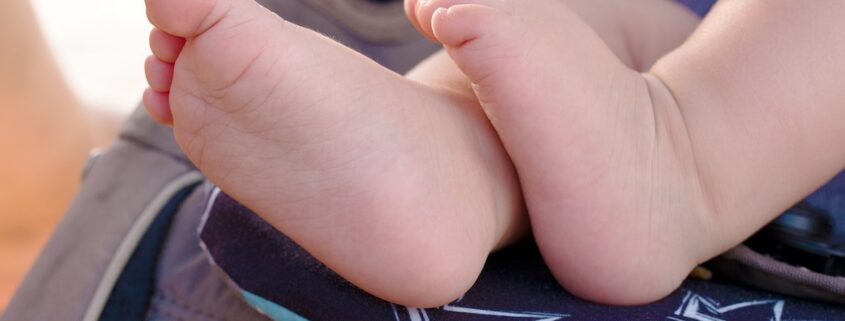Money Matters: Budgeting for a Baby
Cary, NC — Starting a family is truly one of life’s most fulfilling experiences. Unfortunately, it can also be among the most expensive.
The U.S. Department of Agriculture estimates that the cost of raising a child born in 2015 through age 17 averages $233,610 for a typical middle-income family — and that doesn’t include the cost of college tuition.
As you consider your growing family’s fiscal needs, take a look at key areas to address before and after your new child comes home.
Establishing a Health Care Plan

Your first baby-planning step is to choose the benefits you need from your health care plan. A managed care plan, such as a health maintenance organization, can reduce out-of-pocket expenses over a traditional plan, which often requires you to pay at least 20% of care costs. The savings can be significant for families with children.
If both you and your spouse plan to continue working when your child arrives, consolidate the best and most cost-efficient features from both your employers’ benefit plans. For medical expenses not covered by your health insurance, find out if your employer offers a medical reimbursement account (MRA) or a health savings account (HSA). Your contributions can pay for items such as orthodontic care, insurance deductibles, and eyeglasses.
Childcare, Education & Insurance

Childcare and education costs often constitute the greatest expense of raising a child.
Tax breaks can help defray this expense, and employer-sponsored dependent care accounts, if available, let you contribute an annual limit to certain expenses in pretax dollars. And don’t forget about insurance. Obtaining life and disability insurance, as well as naming a guardian for your child, are crucial steps in protecting your child’s future.
As the saying goes, “Parents are people who carry pictures in their wallets — where their money used to be.”
Fortunately, there are certain tax breaks, especially for parents. The Child Tax Credit provides a credit (up to
$2,000 per child in 2020) for children under age 17 at the end of the calendar year. Note that, unlike a tax deduction, a
tax credit reduces your tax bill dollar for dollar. That means that a married couple with three children could potentially
deduct up to $6,000 from their 2020 tax bill. Income restrictions and other rules apply, so check with your tax or
financial professional for details.
Your child’s arrival should also prompt you to protect against potential loss of income by obtaining or increasing disability and life insurance. With disability coverage, try to replace about 60% of your income. With life insurance, assume you will need coverage equal to 5 to 10 times your family’s annual income. Employer-sponsored coverage is often the least expensive, so check to see if your or your spouse’s employer offers it.
It is important now to do some legacy planning. Draw up a will designating a guardian for your child should you and your spouse die together. If you and your spouse die without a will (intestate), a judge decides who will be appointed your child’s
guardian. As a result, it could be someone you hadn’t wanted in this role. Finally, your will should provide for
guardianship that applies to both your current and future children.
Typical Year-by-Year Expense Range
Year 1
- Crib with mattress $300-$500
- Bedding and accessories $100-$300
- Clothes $400-$800
- Diapers (disposable) $500-$1,000
- Maternity/nursing clothes $600-$1,200
- Baby food/formula $1,250-$1,750
- Nursery misc., high chair, toys $300-$500
- Stroller, car seat, baby carrier $300-$400
- Miscellaneous items $400-$500
- 12-week maternity leave (six weeks unpaid) $5,800
- Day care (40 weeks) $6,000-$12,000
- Term life insurance premiums $300-$600
- Disability insurance $1,000-$2,000
- Drawing up a will $300-$600
Estimated Total: $17,500 – $28,000
Year 2
- Clothes $412-$824
- Diapers (disposable) $515-$1,030
- Food $1,500-$2,000
- Toys $309-$515
- Miscellaneous items $412-$515
- Other
- Day care (50 weeks) $8,000-$16,000
- Insurance premiums $1,300-$2,600
Estimated Total: $12,500 – $23,500
Year 3
- Bed $400-$600
- Clothes $450-$900
- Food $1,545-$2,060
- Toys $320-$530
- Miscellaneous items $425-$530
- Day care (50 weeks) $8,240-$16,480
- Insurance premiums $1,300-$2,600
Estimated Total: $13,000 – $25,000
Story courtesy of Briant Sikorski, a Wealth Advisor at Stratos Wealth Partners. Read more Money Matters. Photos by Ashley Kairis.
All the Cary news every day since 2009. Subscribe by email.



